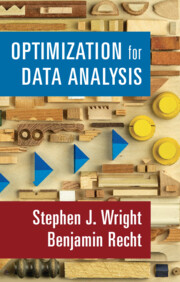Book contents
- Frontmatter
- Contents
- Preface
- 1 Introduction
- 2 Foundations of Smooth Optimization
- 3 Descent Methods
- 4 Gradient Methods Using Momentum
- 5 Stochastic Gradient
- 6 Coordinate Descent
- 7 First-Order Methods for Constrained Optimization
- 8 Nonsmooth Functions and Subgradients
- 9 Nonsmooth Optimization Methods
- 10 Duality and Algorithms
- 11 Differentiation and Adjoints
- Appendix
- Bibliography
- Index
3 - Descent Methods
Published online by Cambridge University Press: 31 March 2022
- Frontmatter
- Contents
- Preface
- 1 Introduction
- 2 Foundations of Smooth Optimization
- 3 Descent Methods
- 4 Gradient Methods Using Momentum
- 5 Stochastic Gradient
- 6 Coordinate Descent
- 7 First-Order Methods for Constrained Optimization
- 8 Nonsmooth Functions and Subgradients
- 9 Nonsmooth Optimization Methods
- 10 Duality and Algorithms
- 11 Differentiation and Adjoints
- Appendix
- Bibliography
- Index
Summary
In this section, we discuss fundamental methods, mostly based on gradient information, that yield descent, that is, the function value decreases at each iteration. We start with the most basic method, the steepest-descent method, analyzing its convergence under different convexity/nonconvexity assumptions on the objective function. We then discuss more general descent methods, based on descent directions other than the negative gradient, showing conditions on the search direction and the steplength that allow convergence results to be proved. We also discuss a method that also makes use of Hessian information, showing that it can find a point satisfying approximate second-order optimality conditions and finding an upper bound on the number of iterations required to do so. We then discuss mirror descent, a class of gradient methods based on more general distance metrics that are particularly useful in optimizing over the unit simplex – a problem that arises often in data science. We conclude by discussing the PL condition, a generalization of the strong convexity condition that allows linear convergence rates to be proved.
Keywords
Information
- Type
- Chapter
- Information
- Optimization for Data Analysis , pp. 26 - 54Publisher: Cambridge University PressPrint publication year: 2022
